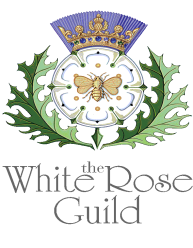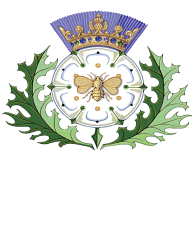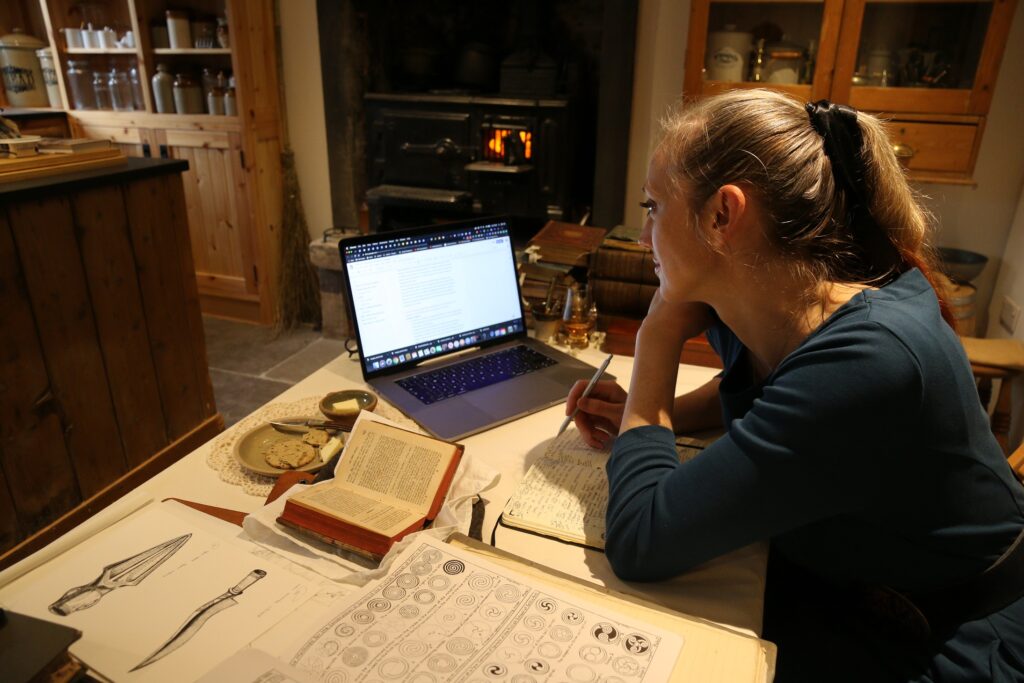
Artist Eileen Budd and publisher Alice Sage from Wide Open Sea are on a mission to rekindle stories of ancient Scotland. Their new book project Ossian: Warrior Poet is live on kickstarter until 15 December 2020.
Our stories, much like our languages, are an important part of our culture, our history and our identities. The land we know as Scotland is an ancient one, its people have a rich tradition of storytelling that reaches far beyond tales of selkies and bogles. Yet we have notably few legends of ancient Scotland.
We do, though, have the Poems of Ossian. These epic sagas recount the battles of a warrior named Fingal in the 3rd century AD, and the life of his son, bard and warrior, Ossian.
At that time, the land now known as Scotland was divided into territories inhabited by various tribes, including the Caledonians. Fingal was chief-among-chiefs of these tribes, the elected leader of an indomitable army that brought the tribes together to fight common enemies.
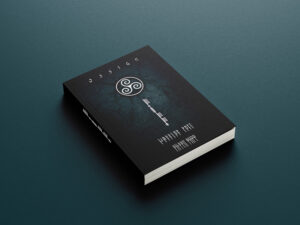
One such enemy was the Roman empire, whose soldiers occasionally made incursions northwards into the land of the people they called the Pictii (a name once thought to refer to the people’s woade tattoos, though scholars now believe the name came from a misinterpretation of the word Pecht, meaning ancestor).
When the Romans advanced into Pictish territory, they were met by a formidable host. Men and women lifted the spear to defend their land and their peoples, in battles bloody and remorseless. More often than not, the Romans were driven back.
Roman chroniclers kept written accounts of these events – and considering their frustrating defeats, it is no wonder their descriptions of the ancient Scots as savages are far from sympathetic! Unfortunately, the dominance of Roman sources as written records of this time in our history mean it is these accounts that have shaped perceptions for two millennia.
Ossian’s poems provide an alternative account of the ancient Caledonians – still a warrior race, but emotionally complex and cultured. Reading these stories, you can imagine warriors racing across the land and raising the stones for long-forgotten heroes fallen in war. The battles are epic and the language so lyrically linked with the natural landscape of Scotland it feels like discovering a portal into the ancient past.
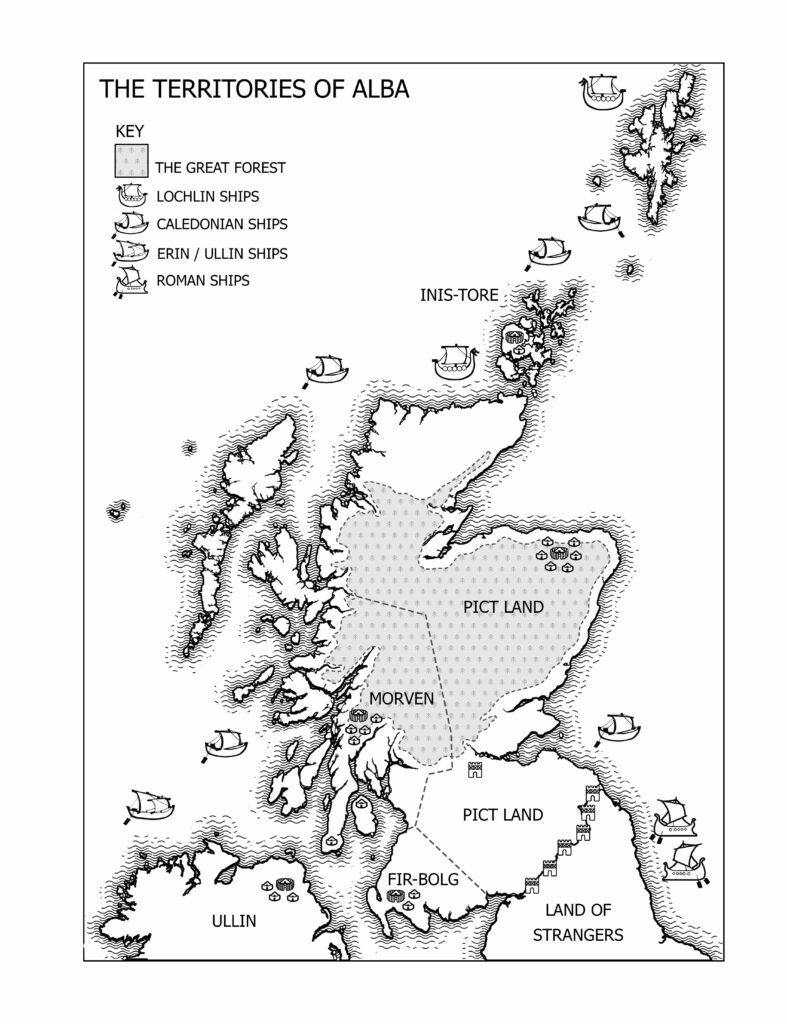
However, if Ossian’s poems are ever discussed nowadays, it is rarely for the stories themselves, but more often for the controversies around their origins. They first appeared in print in 1760, published as Fragments of Ancient Poetry by Scottish author James Macpherson. Macpherson claimed he had translated these “genuine remains of ancient Scottish poetry” from Gaelic. The book was so immediately successful that Macpherson compiled further editions, extending the poems and adding annotations. It was also immediately divisive. Macpherson was accused of both stealing from Irish traditions, and composing them entirely himself (most famously by Samuel Johnson, whose prejudice against Scots was well documented).
As is now recognised by literary scholars, Macpherson’s Ossian wove together threads of Gaelic stories, passed down through the oral tradition, with his own creative translation and interpretation. Like all good storytellers, Macpherson told the stories for his own listeners, making them relevant and appealing to his own time. And Ossian was embraced by the nascent Romantic movement across Europe. The poems were admired by Napoleon, translated by Goethe, set to music by Schubert and painted by Ingres. They influenced the Celtic revival and inspired the style and subjects of Walter Scott and William Wordsworth.
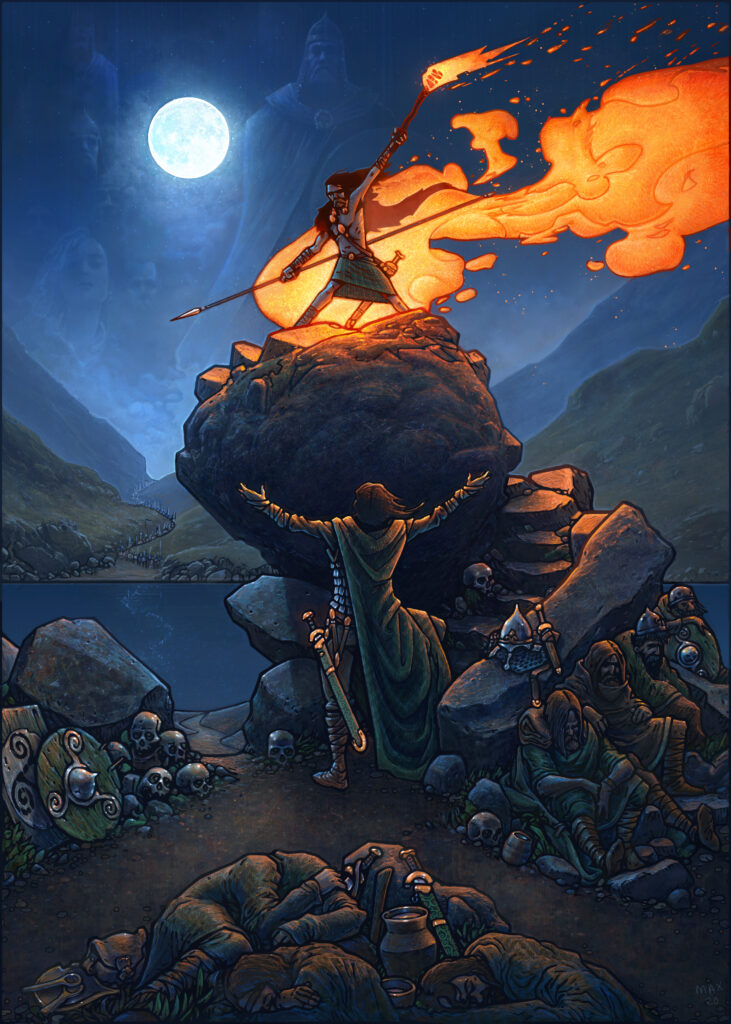
Our new edition, Ossian: Warrior Poet contributes to this tradition of reworking and re-imaginings, while taking us back to Ossian’s 3rd century world. Eileen Budd’s illustrations are rooted in meticulous study of Pictish culture, informed by recent archaeology. For example, the discovery of glass, coins, metal mining, and vellum production has proven the Picts had international trading links, sophisticated manufacture and indicate a written culture. Ossian: Warrior Poet conjures this wider world, taking the reader on sweeping journeys encompassing Ireland, the Highlands and Islands of modern-day Scotland, and Scandinavia. New hand-drawn maps help the reader to navigate this ancient world, and connect the events in the book to familiar places in modern Scotland.
We believe it is time for Ossian’s poems to be rediscovered, and celebrated for their connections to the land, legends and language of Scotland.
Ossian: Warrior Poet will be published in Summer 2021. It will be a 300-page book with full colour illustrations, created, designed and printed in Scotland. The book is being funded through a kickstarter campaign. For our small indie press with big ambitions, kickstarter builds a community of supporters who help get projects started and believe in what we do. Thank you for any support you can give by pledging or sharing: https://www.kickstarter.com/projects/wideopensea/ossian-warrior-poet
Everybody who pre-orders a copy of Ossian: Warrior Poet will have their name in the book and be invited to an online launch party next year. And we have designed an array of rewards for kickstarter backers, including original map prints showing ancient Alba, and the sites of Fingal’s battles.
The campaign will continue until 15 December 2020.
For more information, and to order the book after the Kickstarter, visit wideopensea.co.uk
